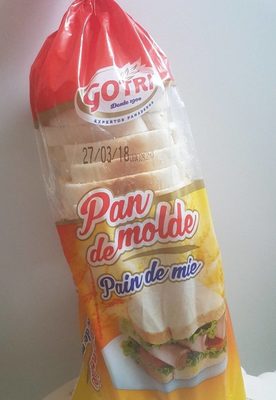
Barcode: 8420622209902
Pain de Mie
DOUBTFUL
📝 Reason: The product contains ingredients with doubtful Halal status due to potential animal origin without Halal certification. Islamic dietary laws require clear Halal certification for ingredients of animal origin to ensure compliance. Without such certification, the status remains doubtful. Reference: Quran 5:3, which outlines prohibited foods and the importance of Halal certification.
📄 Certificates: None
Ingredients:
Details
Understanding the Halal Status of Pain de Mie
Pain de Mie, a popular type of bread, often raises questions about its Halal status, especially among Muslim consumers. The Halal status of this product has been labeled as DOUBTFUL due to certain ingredients that raise concerns regarding their animal origins and lack of Halal certification. Islamic dietary guidelines require clear Halal certification for any ingredients sourced from animals to ensure compliance with dietary laws.
What Does Doubtful Status Mean?
The term doubtful signifies that while the ingredients may not directly contravene Halal laws, their sources and the absence of verified Halal certification put them in a gray area. This situation is critical for observant Muslims who seek to adhere strictly to Halal dietary requirements.
Investigating the Ingredients of Pain de Mie
1. Mono- and Diglycerides of Fatty Acids (E-471)
This ingredient can be derived from both plant and animal sources. Unfortunately, without a clear Halal certification, the status of this emulsifier remains doubtful. Learn more about E-471.
2. Sodium Stearoyl Lactylate (E-481)
Similar to E-471, Sodium Stearoyl Lactylate may come from either plant or animal sources. Its uncertain origin raises concerns, making consumers cautious. More details here.
3. Mono- and Diacetyl Tartaric Acid Esters of Mono- and Diglycerides of Fatty Acids (E-472e)
This ingredient also shares a dubious status, with sources that can include both plant and animal derivatives. The absence of Halal certification makes its use in Pain de Mie concerning. Find out more.
4. Guar Gum (E-412)
In contrast, Guar Gum is derived from plants and is generally considered Halal. Its origin does not pose any compliance issues according to Halal dietary guidelines. Read more about Guar Gum.
5. Calcium Propionate (E-282)
This preservative can originate from animal or synthetic sources, which subclasses it like other ingredients in terms of Halal viability. As such, without explicit Halal certification, its classification remains doubtful. Details here.
6. Sorbic Acid (E-200)
Contrastingly, Sorbic Acid is synthetic in origin and is widely recognized as Halal. It does not conflict with Halal dietary laws, ensuring a safer aspect in the ingredient list for this product. More about Sorbic Acid.
The Importance of Halal Certification
Halal certification serves as a vital seal of approval for consumers, ensuring all ingredients meet the requirements outlined in Islam’s dietary laws. The usage of ingredients with doubtful status can lead to apprehension among consumers aiming to maintain compliance with their ethical and religious standards.
In conclusion, the popularity of Pain de Mie does not negate the pressing concerns regarding its Halal status. With multiple ingredients being categorized as dubious due to their potential animal origins, it is crucial for producers to strive for transparency and certification to satisfy the needs of Halal consumers.

